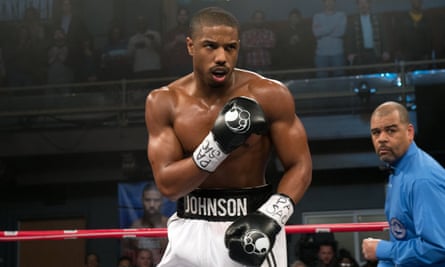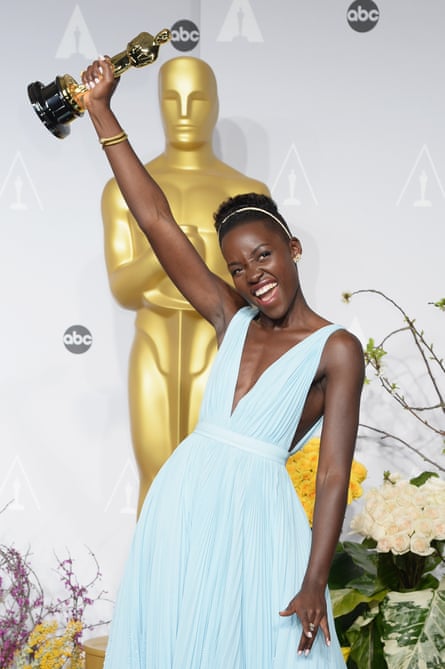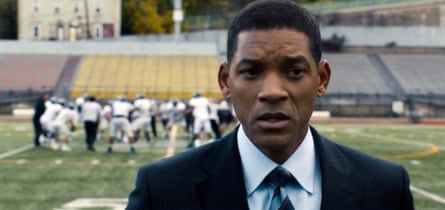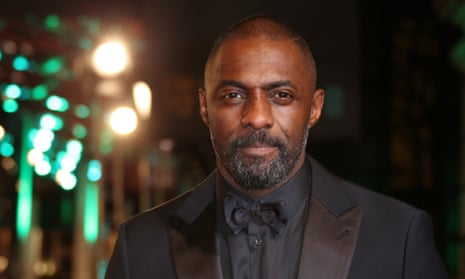They had become a ratings-challenged washout, enlivened only by gaffes, stumbles and over-thanking fiascos. No longer. This year, the Academy Awards have won back the world’s attention by becoming an outrage. The notoriety bred by #OscarsSoWhite will doubtless boost Sunday’s TV audience; but the episode’s long-term fallout may prove less benign than many assume.
The Guardian’s product and service reviews are independent and are in no way influenced by any advertiser or commercial initiative. We will earn a commission from the retailer if you buy something through an affiliate link. Learn more.
The absence of actors of colour from the 20 nominees for the second year running was never going to pass unnoticed. Anti-whiteout protesters have ranged from David Oyelowo and Lupita Nyong’o to George Clooney, Reese Witherspoon and Barack Obama. A boycott has been called, and those staying away from the Dolby will include Ava DuVernay, Spike Lee, Michael Moore and Will Smith.
It is hardly surprising that prejudice is getting the blame. In 2014, only 2% of the Academy’s voters were black. The dominance of the 94% who are white has always infected their judgment, according to their detractors.
So, who are the black actors who have been unfairly snubbed? The main candidates appear to be The Hateful Eight’s Samuel L Jackson, Creed’s Michael B Jordan, Concussion’s Will Smith and Beasts of No Nation’s Idris Elba. All of their performances were worthy – yet not obviously worthier than those of the nominees.
The backlash began last month when New York critic Andrew Gruttadaro dared breathe the unsayable: “This year,” he wrote, “no black people deserved a nomination.” Charlotte Rampling half-agreed. Showbiz guru Baz Bamigboye was emphatic on the matter. John Singleton, Oscar nominated for Boyz n the Hood at 23, said he was “not disappointed”. Earlier this week, Jamie Foxx – who won an Oscar for Ray, in 2005 – told Will Smith he needed to “act better” to stand a chance (he then took the mickey out of his Nigerian accent in Concussion).

The past two years should not perhaps be taken as proof of a black lock-out. Only two years ago, Nyong’o, Chiwetel Ejiofor and Barkhad Abdi all won acting nominations, while 12 Years a Slave, directed by Steve McQueen, won best picture. In the past couple of decades, Foxx, Morgan Freeman and Forest Whitaker have won best actor.
During the current century, 10% of the Academy’s acting nominations have gone to black actors. Black people form 13% of the US population. So are things actually almost OK? Not quite.
Although black actors have done better at the Oscars than some realise, ethnic minorities as a whole have not. Hispanic actors have secured only 3% of the nominations, although 16% of Americans are Latino. Asian-Americans (6% of the population) have had to make do with 1%. The Oscars may not be anti-black; but they are definitely hideously white.
Nonetheless, analysis by the Economist suggests that this cannot be blamed solely on voter prejudice. The Academy’s choices have been limited. During this century, minority actors have secured only 15 % of the top roles (as identified by billing, critical esteem and box-office takings). So, Oscar voters can hardly be criticised for awarding them 15% of the nominations and 17% of the statuettes.
The Oscars may not be anti-black; but they are definitely hideously white
It is not the Academy that is cheating minorities, it is the film industry itself. Currently, ethnic minorities make up around 40% of America’s population, yet they are outnumbered two to one among film leads, two to one among film directors and three to one among film writers.
This is hardly surprising, according to some: studio bosses, like Academy voters, are 94% white. Yet Hollywood honchos are not out to indulge their personal tastes, but to make money. If they thought minority acting, directing and subjects would deliver it, they would doubtless pounce on these assets. They believe instead, however, that on-screen whiteness is an economic necessity.

Ridley Scott, challenged for casting white actors in Exodus: Gods and Kings, replied: “I can’t mount a film of this budget, where I have to rely on tax rebates in Spain, and say that my lead actor is Mohammad so-and-so from such-and-such.”
This kind of thinking is often challenged. After all, Creed and Straight Outta Compton proved box-office hits. Perhaps Hollywood is being too cautious, failing to appreciate that audience appetites have broadened. If films portraying minorities were readily funded and properly marketed, wouldn’t they break through?
Sadly, we cannot assume that they would. The independently produced biopic Selma is often cited as the prime example of myriad sure-fire minority projects routinely turned down by over-nervous major studios. Yet Selma’s returns failed to cover its costs. By their own lights, the big boys were right to shun it, and are right to steer clear of its ilk. Unfortunately, the evidence shows that white people are reluctant to watch minority-dominated films.
This reluctance is sometimes attributed to a racial empathy gap. Yet no equivalent gap affects minority audiences. America’s minority filmgoers eagerly watch the movies that ignore them. During 2012, those slighted Hispanics were their country’s keenest film fans, representing 18% of filmgoers, but accounting for 25% of all tickets sold. Only 20% of the films that black people watch feature predominantly black casts.
Beyond America, the same picture prevails. The likes of Captain America wow the Chinese, Brazilians and Koreans as much as they do these characters’ compatriots. Indeed, executives cite fear of putting off overseas audiences as a prime reason for avoiding minority material. Multicultural Britain is not immune from this: black films are even less successful in the UK than in the US.
Mysteriously, white characters, from Disney princesses to Marvel supermen, appear to have almost universal cinematic cultural appeal. Perhaps this merely reflects Hollywood’s historic hegemony. Whatever it is, the phenomenon is real.
Nonetheless, it is the Oscars that remain in the line of fire. They undoubtedly influence the industry, its audiences and wider public attitudes. So, why not ask them to take the lead?

In the face of the storm, the Academy is buckling. It had already chosen a black host for Sunday’s ceremony. It is increasing the diversity of its board. It is to purge older voters and seek out more diverse replacements. Yet such steps will achieve little on their own as long as the industry’s output remains unaltered. If minorities’ share of the awards is to rise, the basis on which votes are cast will also have to change.
Some openly call for favouritism. “Awards shows have several functions: to reward excellence, but also to show the many forms excellence can occupy,” says Mary McNamara, the Pulitzer prize-winning critic. Mounting pressure could induce Academy members to overrate minority cinema. Newcomers specifically recruited to boost ethnic prospects might prove particularly susceptible. Yet a drift in this direction could prove counter-productive.
Minority winners could find themselves simultaneously patronised and undermined. The achievements of the genuinely outstanding among them could be tarnished. In the wider community, resentment could be stoked. Fewer than a quarter of Americans support this year’s boycott.
Of course, the Oscars have never been allotted exclusively on merit. Candidates who are well liked in the business, are “overdue”, fatten up for a part, or play a character with learning difficulties often enjoy an inflated chance of success. Yet, even if the Academy’s commitment to excellence is sometimes honoured in the breach, it is still what makes its awards enthral the world.
It’s not the Oscars that need to change. It’s us.

Comments (…)
Sign in or create your Guardian account to join the discussion